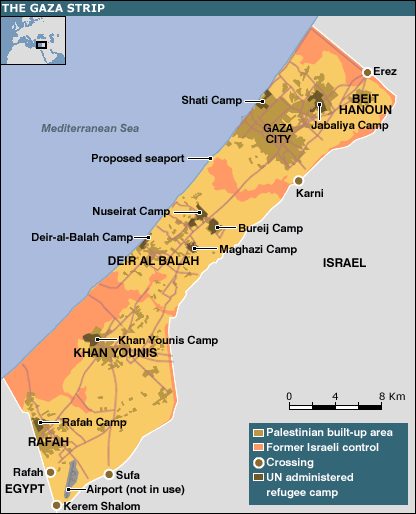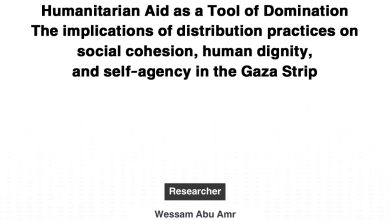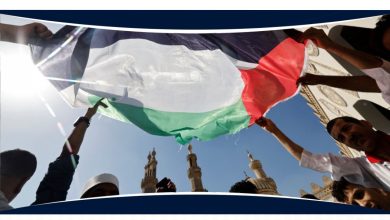Gaza on crossroads again

 By: Omar Shaban
By: Omar Shaban
Following Hamas’s win in the Palestinian Legislative Council elections in 2006, the Israeli government, supported by the United States and the international community, imposed a strict siege on all Palestinian Occupied Territories, followed by a boycott of the new Palestinian government.
Several countries, including major donors like the United States and the European Union, have cut off budgetary support previously offered to the Palestinian government. The result was a gradual deterioration of the living conditions of the Palestinian people, at all levels.
Gaza has been ruled entirely by Hamas since June of 2007, when they took over the Gaza Strip by force after bloody clashes with security forces of the Palestinian Authority. Consequently, Israel took additional measures to further tighten the siege imposed upon Gaza. In September of 2007 the Israeli government declared the Gaza Strip a ‘hostile entity’, and threatened to cut basic supplies including electricity and fuel. It also substantially limited the number of people allowed through the Erez Crossing. In addition, Israel decreased the amount of humanitarian goods to the minimum level, including food and medical supplies. To make things worse, a number of Israeli banks followed the government’s decision, and boycotted Palestinian banks in Gaza; this decision has lead to a serious cash flow crisis in Gaza.
In addition to these hardships, Gaza has witnessed two major developments these last few weeks; the collapse of intra-Palestinian relations and the truce between Hamas and Israel.Both have had serious impacts on the live of the people.
First, the failure of the reconciliation talks between Fatah and Hamas, scheduled to begin in Cairo on November 9th, which shocked Palestinians who were waiting and hoping that the dialogue would bring some level of peace and stability to region.
Palestinians have become more convinced that both rival faction lack any real intention to reconcile. One day prior to the scheduled meetings, Hamas withdrew their participation. They contend that Hamas had released political prisoners in a show good will and expect the same action from the Palestinian Authority in Ramallah. However, members of the government in Ramallah state, “The Palestinian Authority does not have political prisoners”.
Second, the military escalation between Hamas and other militant groups in Gaza and Israel begun on November 5th. The Israeli army invaded the eastern border of the middle section of the Gaza Strip, leading to a response by militant groups. During that operation, the Israeli army clashed with Hamas militants who destroyed two houses and a tunnel, and killed five Hamas militants. Following that incident, other Palestinian factions responded by launching homemade rockets into the southern part of Israel. Israeli authorities responded on November 5th by announcing a full closure of all commercial and pedestrian crossings.
The consequence of the closure has been extremely difficult for ordinary Palestinians.
Restrictions were imposed by Israeli Authorities on personal movement through the Erez Crossing and on essential materials through other border crossings. Erez was closed not only to Palestinians,but also to international visitors and the diplomatic community. Last week, 20 diplomats from the European Union were denied access to Gaza. On November 17th, representatives from 25 international humanitarian organizations were not allowed to enter.
In addition, Israeli authorities stopped the transfer of fuel and humanitarian supplies into Gaza. The industrial fuel transfer from Israel to the Gaza power plant was also stopped, which led to the shut down of the entire plant on Thursday, November 13th. More than 50% of electricity in the Gaza Strip is produced locally, but with fuel from Israel, the rest is supplied directly by Israeli companies. The restriction on the flow of industrial fuel into Gaza resulted in electricity cuts; each area in the Gaza strip is provided electricity supply for only 8 hours per day.
Water and sewage services continue to be severely constrained by the fuel shortages. Fuel deliveries of diesel, petrol and cooking gas for private, municipal and commercial use were lower than the amounts transferred in any week since the truce began in June. The UNRWA was obliged to stop its humanitarian assistance program to its beneficiaries due to the closure.
Since 1967, when Israel occupied Gaza , the West Bank and East Jerusalem , the Israeli occupation has been using access and crossing points as a tool for imposing unprecedented collective punishments on the Palestinians, through imposing a prolonged closure policy. This policy has been intensified lately particularly in the Gaza Strip, which has only two crossings which connect 1.3 million people to the outside world; Rafah in the south with Egypt, and Erez in the north with Israel. There are three other commercial crossing points used to exchange goods and to bring in food to the Gaza Strip. All these crossing points are under full Israeli control, and since the year 2000, have been either closed partially or completely.
The future of the truce between Israel and Hamas seems uncertain at this point. The security incident of November 5th was the first serious incident since the beginning of the truce brockered on June 16th between Hamas and Israel with Egyptian mediation. In light of continuing deterioration and military escalation, both Israel and Hamas agree that the truce should continue. Notably, Hamas has stopped launching rockets into Israel in the last few days, while other groups such as Islamic Jihad and Agsa Brigades. which are affiliated with Fattah, continue to launch HMR. In my assessment, Hamas is interested in maintaining the truce, bearing in mind that Hamas is able to control and prevent other militant groups from launching HMRs.




